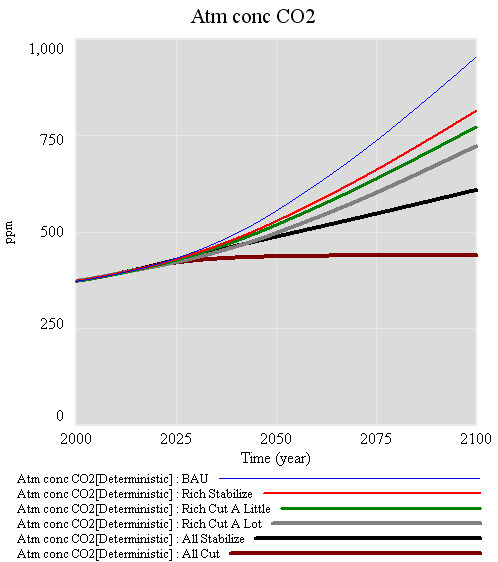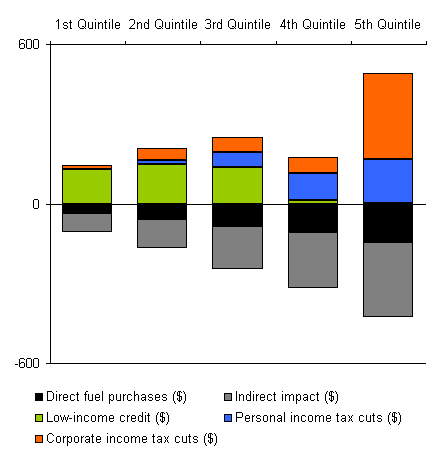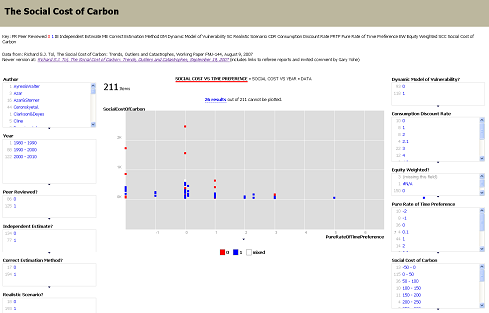I recently wondered whether developing countries were asking for the wrong thing in Bonn. Now Bolivia is barking up the right tree with a proposed “climate debt” concept. The idea’s actually quite old; it’s already well developed in the Greenhouse Development Rights framework.
The trick is, how to achieve an equitable outcome that’s consistent with the physics of climate? Consider this reaction to ideas like climate debt:
Obama’s Global Tax
By INVESTOR’S BUSINESS DAILY | Posted Tuesday, July 29, 2008 4:20 PM PT
Election ’08: A plan by Barack Obama to redistribute American wealth on a global level is moving forward in the Senate. It follows Marxist theology – from each according to his ability, to each according to his need.
…
Obama would give them all a fish without teaching them how to fish. Pledging to cut global poverty in half on the backs of U.S. taxpayers is a ridiculous and impossible goal.
…
We already transfer too much national wealth to the United Nations and its busybody agencies. …
…
If you’re worried abut gasoline and heating oil prices now, think what they’ll be like when the U.S. is subjected in an Obama administration to global energy consumption and production taxes. Obama’s Global Poverty Act is the “international community’s” foot in the door.
…
Obama has called on the U.S. to “lead by example” on global warming and probably would submit to a Kyoto-like agreement that would sock Americans with literally trillions of dollars in costs over the next half century for little or no benefit.
“We can’t drive our SUVs and eat as much as we want and keep our homes on 72 degrees at all times . . . and then just expect that other countries are going to say OK,” Obama has said. “That’s not leadership. That’s not going to happen.”
Oh, really? Who’s to say we can’t load up our SUV and head out in search of bacon double cheeseburgers at the mall? China? India? Bangladesh? The U.N.?
I suspect that these sentiments are quite prevalent, at least in the US. I’m even sympathetic in at least one respect: transfers from the global rich to poor are beneficial in principle, but difficult to execute. Transfers from country to country are susceptible to capture by elites. Direct transfers among individuals could be facilitated by a global carbon market with allowances allocated to individuals (one of the few good arguments for emissions trading in my mind), but would undemocratic regimes permit their citizens to participate?
I don’t see agreement on this front any time soon. I could see things going a different way: the US, EU and a few other developed nations move to reduce, then goad developing nations along with a mixture of carrot (offset projects and other transfers) and stick (border carbon adjustments).



